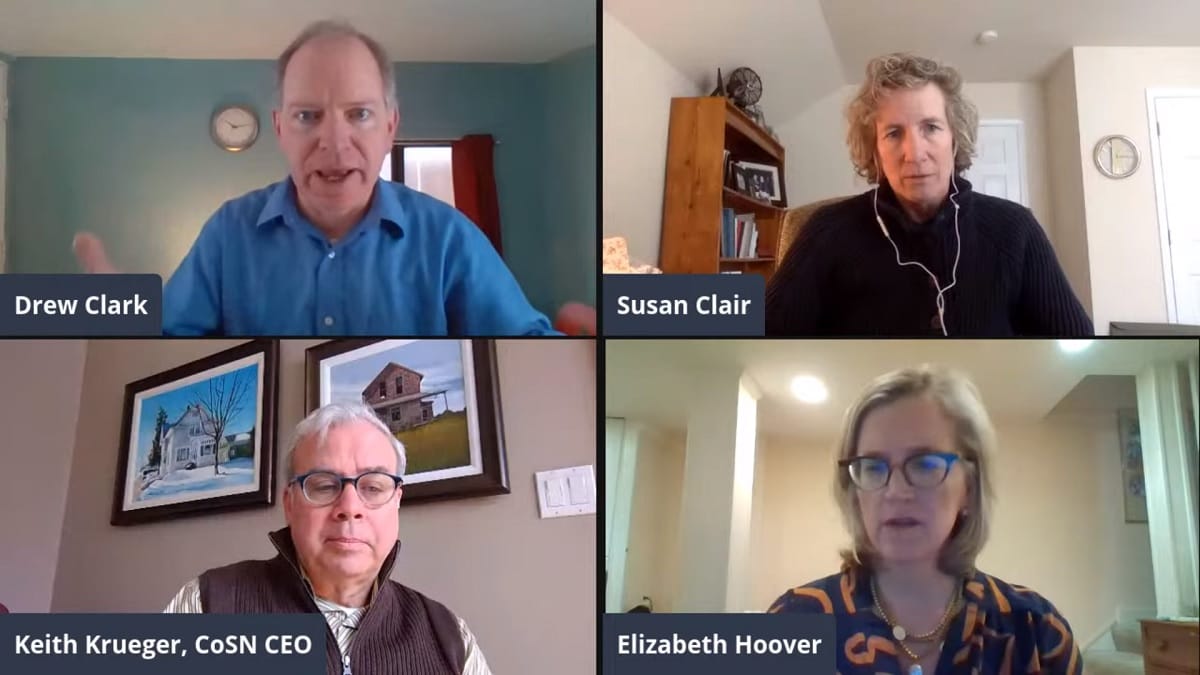Broadband Breakfast Live Online Panelists, and Others in EdTech, Agree that Internet is Not Optional Anymore
March 26, 2020 – Broadband access is both an affordability and availability issue, and it is one that undeniably affects school-age children during the coronavirus school closures, said Virginia Department of Education Learning Infrastructure Coordinator Susan Clair during the Broadband Breakfast Li
Adrienne Patton

March 26, 2020 – Broadband access is both an affordability and availability issue, and it is one that undeniably affects school-age children during the coronavirus school closures, said Virginia Department of Education Learning Infrastructure Coordinator Susan Clair during the Broadband Breakfast Live Online event Thursday.
As cases of coronavirus continue to sweep across the United States, the digital divide is a gaping fissure between those who have broadband and those who are unconnected during a worldwide pandemic.
Clair said there are backorders for mobile hotspots. For students who do not have broadband access at home, renting or buying a hotspot is a crucial temporary fix to lack of access.
Clair criticized mobile carriers for not lifting mobile data caps, meaning that those who only have access to a cellular connection have limited accessibility and data.
The “one to one program” in some school systems provide one device per child during the day or a device to take home from school.
Alexandria City Public School Chief Technology Officer Elizabeth Hoover said elementary to high school teachers are using a variety of platforms like Zoom, Canvas, or Clever. Hoover touted the partnerships and programs that the schools have access to for digital learning.
However, “if you can’t get all 25 kids in the Zoom class because they don’t have internet access, we’re really failing our kids,” said Hoover.
Broadband Breakfast Editor and Publisher Drew Clark asked how the coronavirus pandemic will change education technology going forward.
“Typically, technology by many educators has been thought of as an option or supplemental classroom instruction. What we are seeing with this COVID-19 moment is that EdTech is now a requirement, not a choice,” said Consortium for School Networking CEO Keith Krueger.
In an interview conducted earlier this week with Broadband Breakfast, educational expert Joseph South echoed Krueger’s sentiment.
Drawing a parallel between educational technology and MREs (:meals ready to eat”), South said schools have long treated digital learning as a tool stored in the pantry.
“That will change,” he said. Educational technology “will no longer be an exotic MRE on the pantry shelf.”
South, who previously worked in the Office of Educational Technology at the Department of Education, said the wide adoption of EdTech after coronavirus would depend on the length of the crisis. “Partly out of nostalgia,” humans tend to “go back to the way we did things before,” said South. “This crisis is acute, so its impact is wide, and it’s painful,” South observed.
In the wake of the coronavirus crisis, funding is crucial to closing the digital divide. The Federal Communications Commission should “made E-rate money available to temporarily fill these gaps,” suggested South. These funds could reach millions of students, said South.
Speaking at the Broadband Breakfast Live Online event, Krueger also addressed the need for E-rate funds for home access.
The FCC has “not used their emergency powers to solve some of these issues, and so the ball is in their court,” stated Krueger.
South, now the chief learning officer for the International Society for Technology in Education, has worked with several organizations to launch a web site that centralizes the swarm of different resources for teachers and parents that aid in digital learning.
This effort attempts to help educators to shift through the deluge of resources to find the sources that best apply to their particular school and class.
The takeaway from the current situation is to incorporate educational technology into the classroom, so teachers and students are comfortable with it, said South. So that “when these moments come – yes, there’s still a strain – but, it doesn’t bring everything to a halt,” said South.
Follow upcoming Live Online events, see Broadband Breakfast Live Online Will Stream Daily in March on ‘Broadband and the Coronavirus’








Member discussion